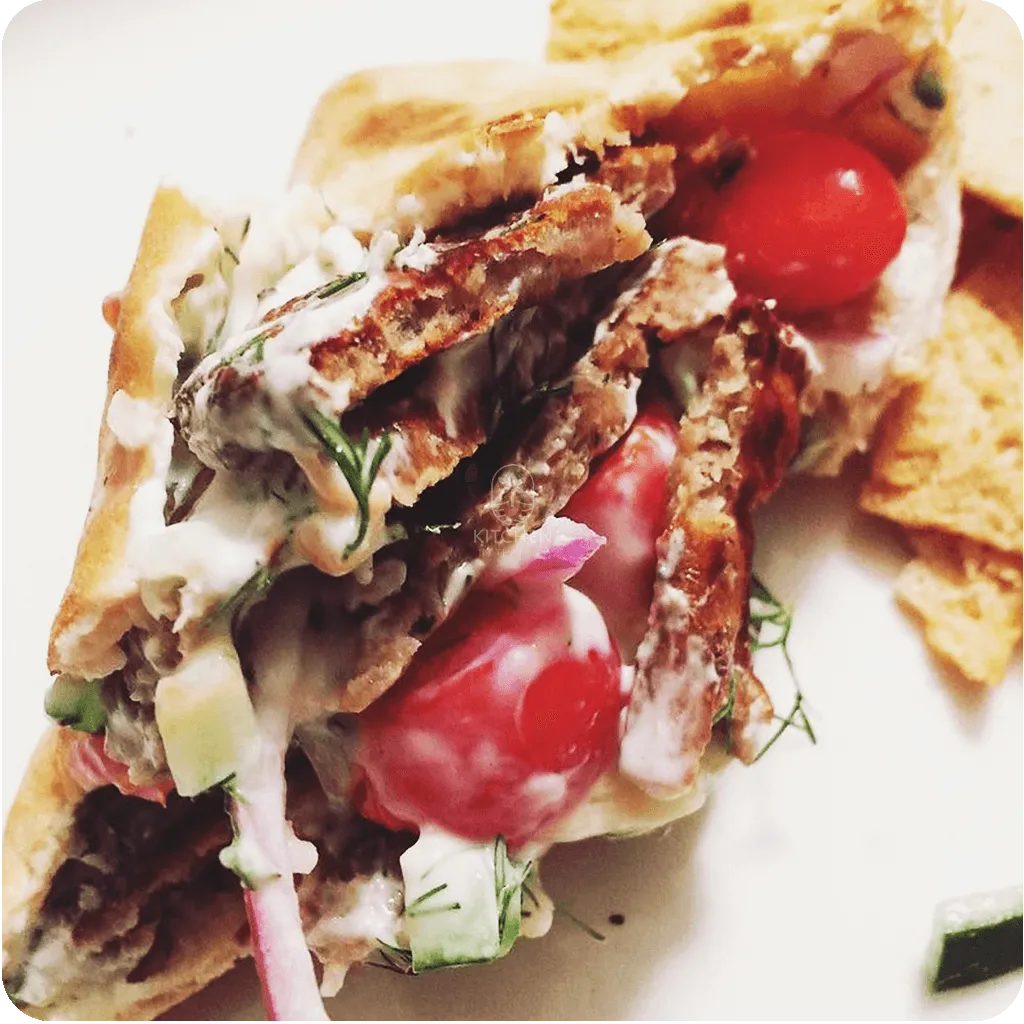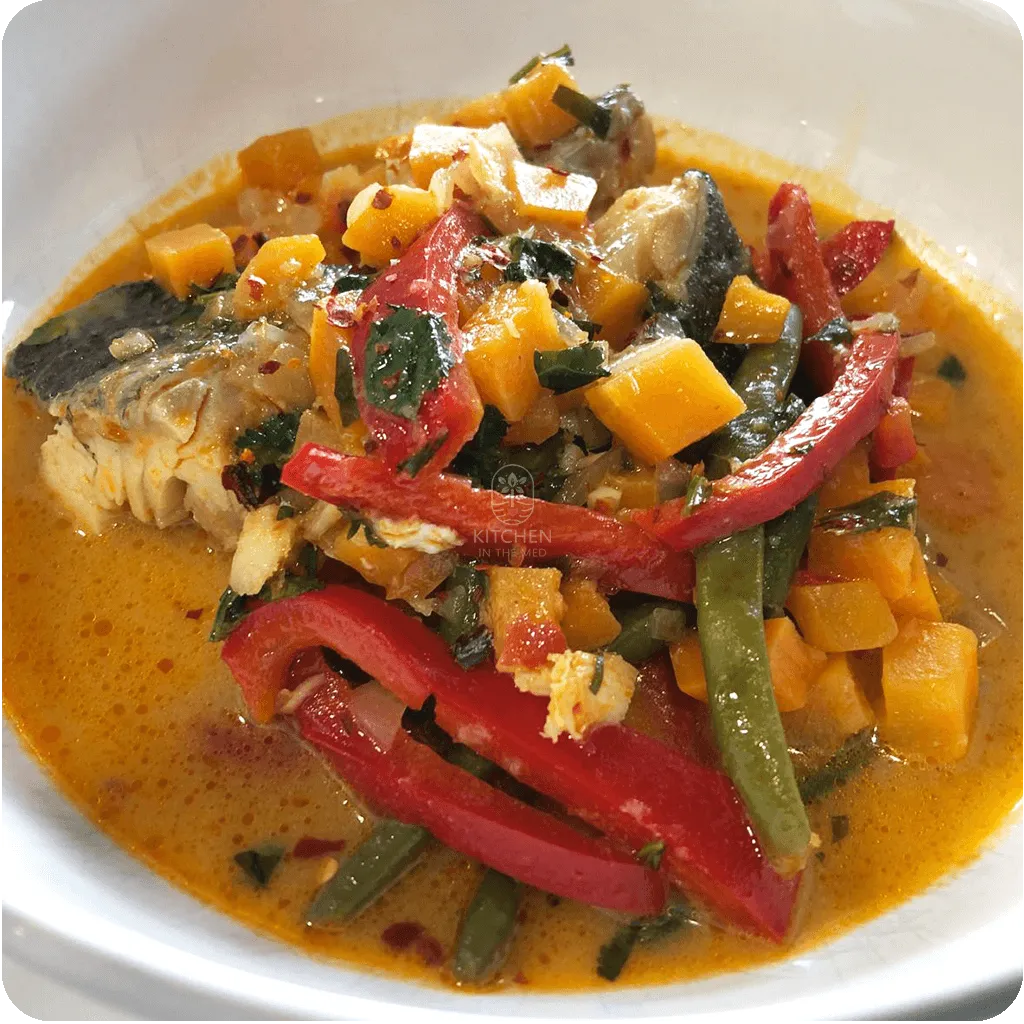The Hidden Allergens in Your Favorite Winter Mediterranean Dishes
Think your comfort-inducing Mediterranean winter dishes are allergen-free? Think again! As the chilly weather sets in, we often turn to hearty, warming meals from the Mediterranean that promise nourishment and nostalgia.
But what if these beloved dishes harbor hidden ingredients that might trigger allergies?

Ragweed Polen
Share this article
Mediterranean Winter Comfort
The Mediterranean diet is packed with fresh vegetables, lean proteins, and healthy oils, making it a great choice, especially in colder months when we crave comfort food. The recipes range from warm stews, quality meats, fish and seafood to roasted vegetables.
But don’t let their warmth and homeliness fool you; some dishes might contain unexpected allergens.
Olive Oil: Friend or Foe?
You might think extra virgin olive oil is the holy grail of Mediterranean cooking. True, it’s loaded with antioxidants and healthy fats, but it’s essential not to overlook its potential downsides.
Some individuals might have an olive pollen allergy, translating into reactions from ingesting the oil itself.
While rare, it’s a reminder always to double-check ingredient lists, especially when dining out.
Nuts About Almonds
Almonds appear ubiquitously across Mediterranean cuisine, often ground into pastes or sprinkled generously over desserts.
For those with nut allergies, this can turn any seemingly innocent dish into a potential crisis.
Be vigilant whenever you’re presented with Mediterranean treats containing nuts.
Cheese: The Hidden Culprit
Cheese is a celebrated staple of Mediterranean fare, from creamy feta to pungent pecorino. However, these cheeses are less of a gift for lactose-intolerant individuals and more of a hidden challenge.
Interestingly, some Mediterranean dietary practices involve fermentation that can decrease lactose content, potentially offering a safer option.
Yet it’s always wise to verify your cheese’s credentials!
The Inconspicuous Gluten Factor
Interestingly, some iconic Mediterranean practices, such as bread-making in certain regions, employ traditional grains that may be less problematic for gluten sensitivity than modern wheat.
However, check dishes like tabbouleh or couscous for wheat content, which can be problematic for those with celiac disease.
Consider wheat-free alternatives like quinoa or rice to adapt gluten-friendly versions of these classics.
Seafood Surprises
Seafood, a centerpiece in Mediterranean culinary artistry, can spell trouble for those with shellfish or fish allergies.
A seafood paella might look tempting, but its ingredients require scrutiny, as most versions of paella include seafood.
It’s a gentle reminder that asking questions and verifying freshness is always a safe bet.
Tricky Spices and Sauces

Oil on Water
Credit Mireille Lévénez
Many Mediterranean dishes feature aromatic spices and lush sauces, some containing allergens like mustard or sesame.
A little-known fact is tahini (sesame paste) can sneak into dips such as hummus.
To ensure a feast doesn’t turn into frustration, ask kitchen staff questions about sauce contents.
Eggs: The Breakfast and Beyond
An unsuspecting component, eggs play a vital role in Mediterranean baking and binding techniques in various dishes.
For those with egg allergy, moussaka or mayonnaise-laden salads can be problematic.
For an egg-free experience, dare to substitute it with flaxseed or aquafaba for similar results, minus the worry.
The Irony of Wine

Mustard Seeds
Mediterranean cultures often feature wine as an accompaniment to meals. However, histamines or sulfites in wine may cause issues for sensitive individuals.
For some, venturing into organic wines or non-wine alternatives could help avoid concerns.
Always best to sip sensibly with your head held high.
Legume Lifestyle Dilemma
Chickpeas and lentils are ever present in Mediterranean diets, but legumes can include allergens for some people.
You can find them in hummus, salads, and stews.
The key is understanding how your body interacts with these nutritional powerhouses.
Better Use Organic Fruits
Citrus and stone fruits, often used to garnish Mediterranean dishes, can sometimes lead to allergic reactions due to pesticide residues or cross-contamination.
Drying or preserving techniques occasionally alter citrus or stone fruits.
Regional Bread Peculiarities
Investigate the bread base used to avoid contact with potentially problematic grains.
You could conduct a taste-through history through limited allergen risk – not a nasty chore, right?
Butter vs. Margarine
The Mediterranean embraces both butter and margarine’s culinary capabilities.
Use lactose-friendly versions to avoid issues.
Hidden Soy Elements

Homemade Gyros
Sometimes, Mediterranean recipes replace traditional dairy with tofu, which can cause allergic reactions in some people. Always check that soy-based ingredients, like blends or dressings, are safe for those with soy allergies. I always read the labels.
Examining the Herb Garden
Some Mediterranean herbs can trigger pollen-related allergies, making their aromatic appeal a potential issue. Basil, oregano, and thyme are popular choices that draw in chefs and diners alike. Checking for sensitivities ensures a safe and enjoyable culinary experience.
Seeds of Consideration
Sesame and poppy seeds are rarely considered until they become hidden allergens in flavorful dishes. You can find them in a range of dishes from sesame-topped breads to poppy-seed garnishes on entrées. Enjoy these seeds mindfully while staying aware of their risks.
Seeds of Consideration
Cookie dough is a beloved part of Mediterranean baking, but it can pose challenges for those with nutmeg allergies or honey sensitivities. If you choose alternative ingredients you avoid these issues while still delivering delicious desserts. Understanding your guests’ needs ensures a sweet ending without worries.
Navigating Allergy-Friendly Mediterranean Winters
The warmth of Mediterranean cuisine can sometimes hide unexpected allergens, but this doesn’t have to ruin the experience. With some preparation and informed choices, you can enjoy Mediterranean dishes safely. The best meals are those shared with care and understanding. Enjoy and bon appétit!
Share this article
Welcome to Kitchen in the Med!
I’m Alberto, born and raised in Barcelona, Spain, a principal city in the Mediterranean.
Here, I share authentic, easy-to-follow recipes inspired by the rich flavors of my home. You’ll find wholesome, time-honored dishes, expert cooking tips, and ingredient guides to help you bring the Mediterranean diet and other dishes to your kitchen—regardless of where you live.
You can also follow my quest to find a small plot of land to live and grow a garden in the Med.


